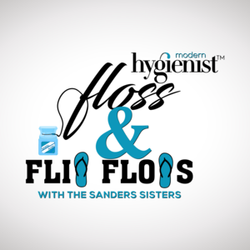- About Us
- Advertise
- Editorial
- Contact Us
- Terms and Conditions
- Privacy Policy
- Do Not Sell My Personal Information
© 2025 MJH Life Sciences™ and Dental Products Report. All rights reserved.
Oral cancer: Come together, right now
Somewhere along the way, something really bizarre happened: The mouth got separated from the rest of the body. After all, we have dentists, and we have physicians. We have dental insurance and we have medical insurance.
Somewhere along the way, something really bizarre happened: The mouth got separated from the rest of the body. After all, we have dentists, and we have physicians. We have dental insurance and we have medical insurance.
The result is the adoption of a notion that what happens in the mouth doesn’t really matter-that they’re just teeth after all … I can always get a denture. But as dental professionals, we understand that it’s not just about teeth. The mouth as part of the gastrointestinal system is home to all kinds of microbes-some helpful and others that are down-right destructive. The challenge is to help our medical colleagues and the patient understand the impact that oral health has on systemic health.
I do not know of any health care provider who would ask a patient with an open wound to take the contents of a petri dish growing P. gingivalis and rub that into the injury, yet the risk for bacteremia is the same in when a patient with mismanaged periodontal disease seeks care for a medical condition without addressing his or her oral health needs. There has been an increased focus in recent years to illustrate the correlation between oral and systemic health and many well designed studies have authenticated this link. Why, then, do we, as a society, continue to dismiss oral health as a second-tier concern?
Some of the areas of medicine where the importance of oral health is obvious are seemingly logical. In the world of oncology, for example, most patients who are planned to be treated with chemotherapy will experience times of immunosuppression where the body is unable to ?ght infection adequately. Neutropenia and thrombocytopenia often go hand and hand with chemotherapy, increasing the risk for a septicemia of oral origin. For patients with head and neck cancer undergoing radiation therapy, poor oral health can lead to increased incidence and severity of oral complications such as oral mucositis or even osteoradionecrosis. Issues like these, when experienced during cancer treatment, can necessitate altering the oncology schedule which can adversely affect the patient’s chance of survival.
“Patients deserve nothing less than oncologists and dentists working for them as a team,” says Dr. David Schwartz, radiation oncologist and chief of the head and neck team at University of Texas Southwestern Medical School Radiation Oncology Department. “The stakes are too high and the interventions are too sophisticated not to have a concerted comprehensive approach to care.”
The need for cooperation between physicians and dentists does not just apply to oncology. Cardiovascular disease, autoimmune issues, organ and tissue transplants, diabetes, immunosuppressive disease like HIV/AIDS, infections and even pregnancy can all bene?t from a combined approach to health care with medicine and dentistry/oral medicine working together. And the list goes on…
Now is the time to bridge the gap that has existed for so long between these two silos of health care. Now is the time to realize the undeniable link between medicine and dentistry. Now is the time to reconnect the mouth to the rest of the body. Our patients deserve it, and many are beginning to demand it. Now is the time to form alliances with medical colleagues in your community and be a part of taking health care to the next level.
Related Content:



